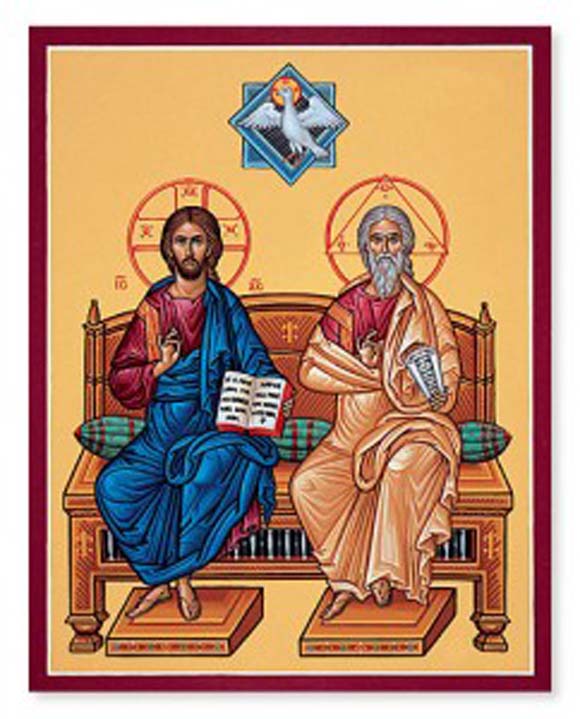
Credo 27 – … and is seated at the right hand of the Father
 Anthropologists have noted that in many cultures, the right side of the body is considered to be of greater importance and this is true of the cultural milieu of the Scriptures. Repeatedly in the Old Testament, the right hand is the one of victory, power, strength and the Gospels indicate that Jesus also employs such symbolism (see, for example, Matthew 5:29-30). As such, the right side of the body was understood symbolically to be good, precious, important. It is also the right hand that is associated with authority, might and dominion. Consequently, it is significant that Christ is raised to the right hand of the Father.
Anthropologists have noted that in many cultures, the right side of the body is considered to be of greater importance and this is true of the cultural milieu of the Scriptures. Repeatedly in the Old Testament, the right hand is the one of victory, power, strength and the Gospels indicate that Jesus also employs such symbolism (see, for example, Matthew 5:29-30). As such, the right side of the body was understood symbolically to be good, precious, important. It is also the right hand that is associated with authority, might and dominion. Consequently, it is significant that Christ is raised to the right hand of the Father.
The key Scriptural text is Psalm 110:1 – “The Lord says to my lord: ‘Sit at my right hand, till I make your enemies your footstool’” – which the Church sings in her liturgy every Sunday. Inspired by this, we find nascent expressions of belief in Christ seated at the Father’s right in the New Testament letters attributed to St Paul (e.g. Ephesians 1:20; Colossians 3:1). This psalm verse is the most cited Old Testament text in the New Testament and it also has the distinction of being the only one commented upon by Jesus in the Synoptic gospels (Mt 22:41-46; Mk 12:35-37; Lk 20:41-44). Here, the point being made is that Jesus, the Messiah, is both greater than David and is Lord. As we have seen earlier in this series of posts, to call Jesus ‘Lord’ indicates his divinity. Hence St John Damascene explains that this article of the Creed confirms the significance of the Ascension by confessing that Jesus, in his risen and glorified flesh, shares the Father’s “glory and honour of divinity”, which is also his from all eternity.
In addition, this article of the Creed also affirms Christ’s authority as Messiah, as revealed in the prophecy of Daniel: “And to him was given dominion and glory and kingdom, that all peoples, nations, and languages should serve him; his dominion is an everlasting dominion, which shall not pass away, and his kingdom one that shall not be destroyed” (7:14). Jesus himself alludes to this text and makes a connection to Psalm 110 in Mark 14:62 when he answers affirmatively that he is the Christ. As such, the authority given to Christ is for the establishment of God’s Kingdom: “a kingdom of truth and life, a kingdom of holiness and grace, a kingdom of justice, love, and peace” (Preface of Christ the King).
Finally, in the ‘Gloria’, we implore Christ, who is seated at the Father’s right hand, to receive our prayer and to have mercy on us. Such imagery of priestly intercession again finds a resonance in Psalm 110 which evokes the eternal priesthood of Melchizedek. Therefore, in affirming that Christ is seated at God’s right hand, we can call upon him as our mediator and our intercessor, for he is our great High Priest. Thus, when he comes as Judge and to rule over his Kingdom, as the Creed goes on to declare, we can rely on his merciful compassion: “For we have not a high priest who is unable to sympathize with our weaknesses, but one who in every respect has been tempted as we are, yet without sin. Let us then with confidence draw near to the throne of grace, that we may receive mercy and find grace to help in time of need” (Hebrews 4:15-16).


